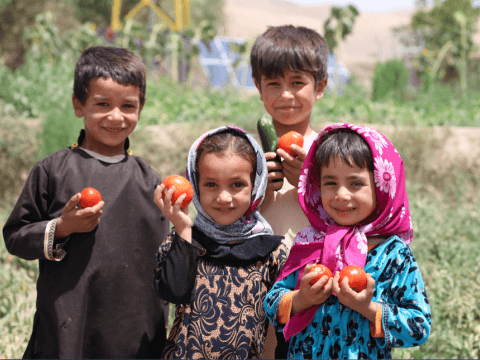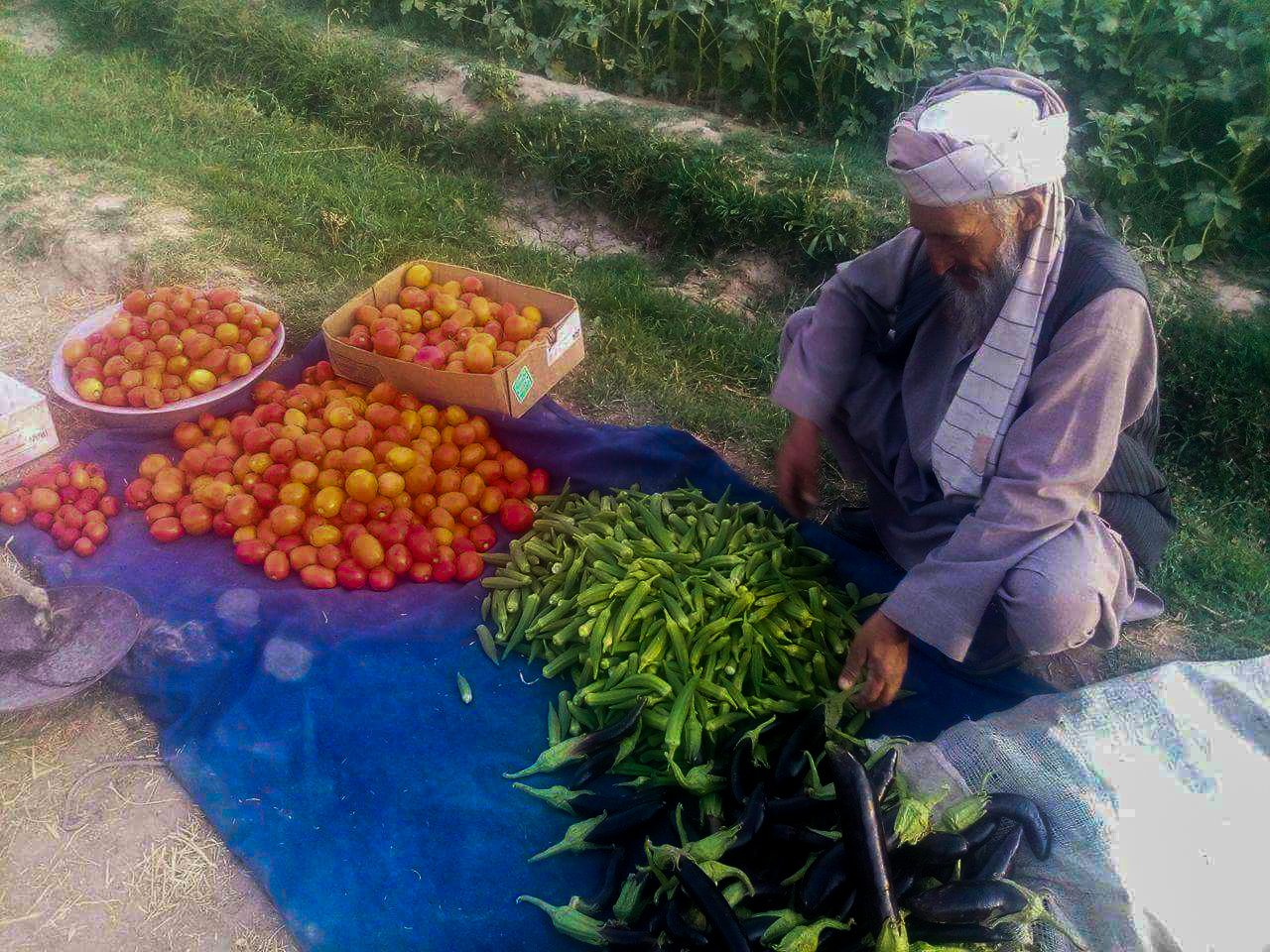Meet one of the luckiest farmers in Badghis

Mohammad Omer, 53, is a vegetable farmer in one of the remote area of Badghis province, Afghanistan. He has always had an interest in cultivating of crops, but due to lack of water and knowledge on better agricultural practices he could not receive a good harvest to cover his household expenses.
Mohammad is the only breadwinner of 9 persons in his family. Agricultural production is the only source of income for him which merely covered household expenses including his children school supplies as well as medical treatment.
Prevailing drought conditions in Badghis from last year, destroyed the winter harvest and also wiped out the new crops that were planted for the spring growing season. According to UN Food and Agriculture Organisation (FAO), the number of livestock in Afghanistan was considerably reduced by the severe four-year drought that contributed substantially to the impoverishment of the rural population. The livestock population in March this year was estimated to have declined by about 60 percent since 1998.
Mohammed is among 7,400 people in western Afghanistan who have been affected by severe drought this year. The drought has resulted water sources to dry up and it has caused serious decline in agricultural harvests/productions. The lack of irrigation water caused tensions and pressures on the farmers’ lives. “When there is no irrigation water how can we expect crops? This is a very tough year for all of us, specially farmers. I hope God shows his mercy to all of us.” Mohammad says.
The Australia Afghanistan Community Resilience Schema (AACRS) project has helped farmers to access irrigation water through construction of irrigation infrastructures such as Karizes, water catchments and canals. The catchment could collect the run off during rainy seasons and increase the water level, which further increase the discharge for Karizes. With support from AACRS project farmers could irrigate approximately 6389 Jerib (1277.8 Hectare) area of lands.
Mohammad in a local market selling his crop.
“I could use irrigation water through surface water flowing from Kariz to irrigate my farm, and irrespective of drought, I am hoping to have good yields this year If this water wasn’t available for us, we would have left this village already.” Mohammad says.
In addition to irrigation support, Mohammad and his fellow farmers received improved seeds from the project and learnt about improved production practices to make higher yield and get better quality harvest. Mohammed has cultivated eggplants, tomatoes, okra and carrots in this year and the knowledge gained at trainings along with improved seeds and sufficient irrigation water have helped him to have a better yield.
Mohammad added that, “Before the project, I could do farming only in rainy seasons, but now my income is around US$215 monthly and I have a good income throughout the year. The project helped many other famers in my village, and if we did not get this support we would have pulled out of children from school, moved to Herat, living in a tent and begging for food and water from others. No word to express my gratitude to World Vision.”
There is need for much more efforts to engage in Disater Risk Reduction infrasturcur development such as flood protection, water catchment construction, soil retention interventions, dryland farming inputs and techniques.
